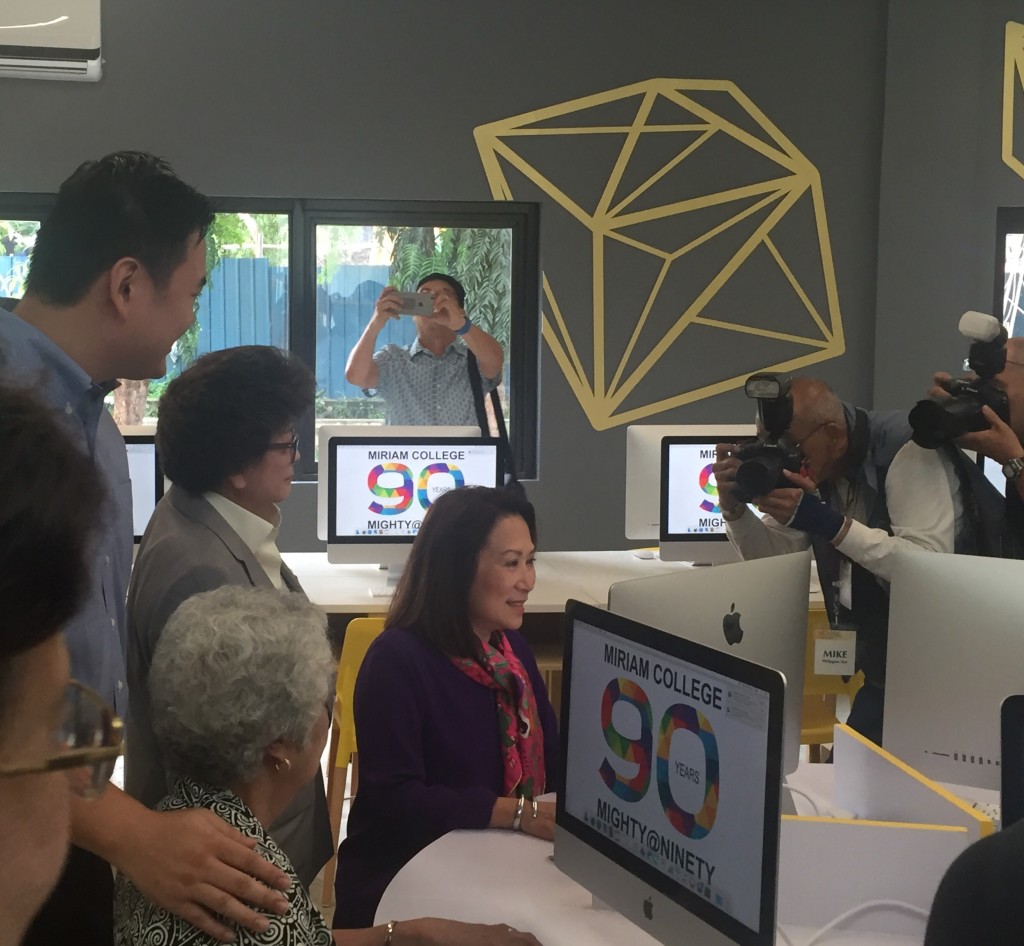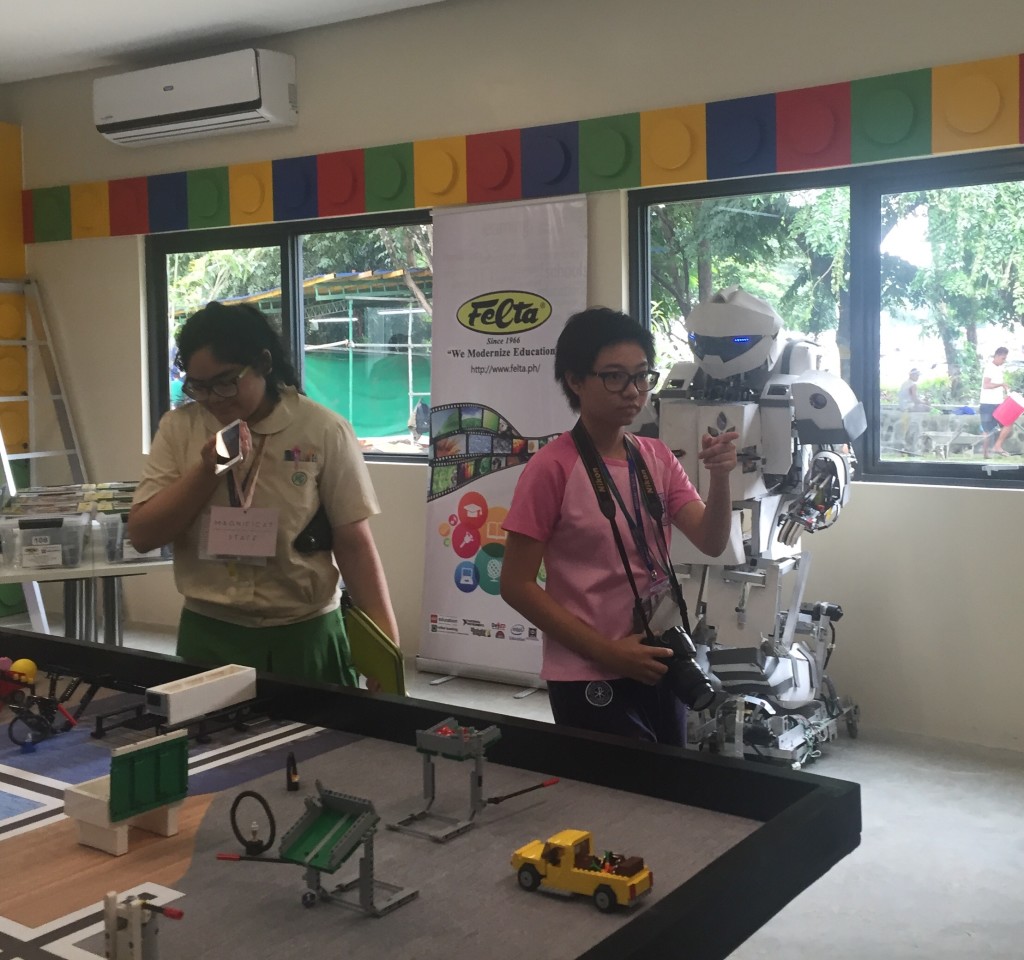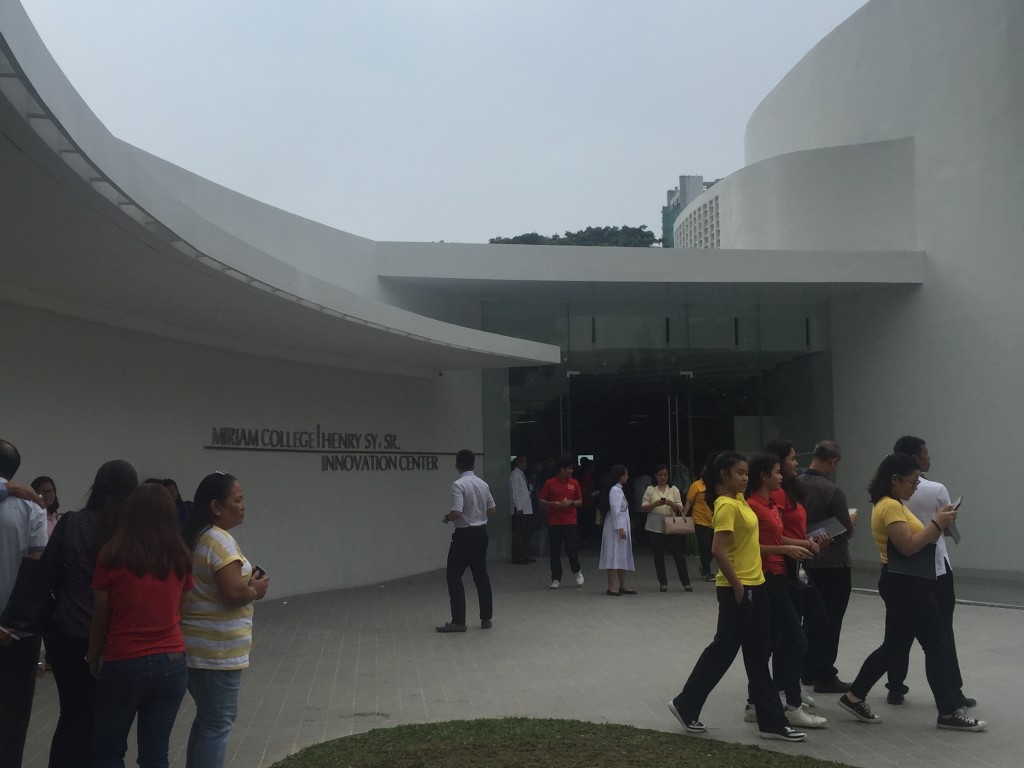Henry Sy donates P100M innovation hub to Miriam College

Maryknoll/Miriam College alumna Betty Sy, president of SM Hotels, tests equipment at the innovation hub donated by the SM group to Miriam College
THE SM group has donated a P100-million innovation center – the Philippines’ first-of-its-kind integrated “makerspace” – to Miriam College on the occasion of the 90th anniversary of this educational institution originally built by Maryknoll nuns.
The Miriam College-Henry Sy Sr. Innovation Center was turned over on Wednesday morning by the Henry Sy Sr. Foundation through SM Hotels and Convention Corp. president Betty Sy, an alumna of Maryknoll College (Class of 1974). The innovation hub stands on a 1,412-square meter lot near the entrance of Miriam College campus in Quezon City.
“I have very good memories (of Maryknoll). It was a school that taught us to be ourselves, to be independent, to be fearless and conventional. That’s what I value about Miriam College. We knew it as Maryknoll College,” Sy told reporters at the sidelines of the turnover ceremonies yesterday.
A “makerspace” is a place of innovation where a community of learners can gather to tinker, discover, create, collaborate and find solutions to various problems using the tools provided in its different work stations or laboratories. This is where emerging leaders in the country can transform ideas into tangible and viable products or services that can provide solutions to identified problems. For example, middle and high school students may conduct experiments or explore robotics and coding while college students taking up applied arts or entrepreneurship may use 3D printers to incubate new entrepreneurial ideas.
The new hub is seen to immerse Miriam College’s students and faculty in 21st century disciplines under the acronym DREAM – design, robotics, engineering, entrepreneurship, arts and mathematics.
“It is here at the Miriam College- Henry Sy Sr. Innovation Center where we will follow a new model of teaching and learning, one that brings change and improvement to current school and classroom practices- much like what our pioneering and progressive Maryknoll nuns did when they established their first mission school in Malabon in 1926,” said Miriam College president Rosario Lapus.
In 1926, Sisters from the Maryknoll Congregation in New York initiated a teacher-training program for women in the Philippines in an old remodeled Augustinian Convent in Malabon. This was the Malabon Normal School (which eventually became St. James Academy). The school transferred sites several times until 1953, when its name was officially changed to Maryknoll College and laid down its permanent roots in Diliman (or Loyola Heights), Quezon City. In the 1960s, the Maryknoll congregation saw the readiness of the Filipino laity to continue the educational mission they had started, thereby turning over ownership and management of the school to lay administrators in 1977. It was renamed Miriam College in 1989.
Lapus said this hub could be a “sacred space for imagining, designing and making” and was meant to honour and nurture young inventors, problem-solvers and entrepreneurs.
SM Investments Corp. chief finance officer Jose Sio told reporters that the group had donated P100 million for this facility through the Henry Sy Foundation. “Education is the heart of the foundation,” he said.

-a fabrication laboratory (fablab), a small-scale creative workshop with tools that aim to make “almost anything” using advanced digital manufacturing technology;
– an instrumentation laboratory (instrulab) for conducting investigatory projects and experiments;
– an engineering and electronics laboratory (E-L@b), for exploring robotics and coding using digital devices and building tools;
– a multi-media laboratory (multi-media lab) dedicated to the creation of new media and art forms as well as learning of web authoring, software development, animation, graphic and web designing and digital audio/video manipulation;
– a performance laboratory for the interaction of art games and art production processes;
– a kitchen and cafe (CCA Makers’ Cafe), a modern gastronomic science and food art laboratory;
– a play loft with pocket classrooms that support design-oriented thinking; and,
– an “innovatrium,” a state-of-the-art theater for holding symposia, workshop, conferences and training.
The following partner-institutions equipped the laboratories with the latest tools in innovation and contributed to the development of its programs: Power Mac Center, Emerson Electric (Asia) Ltd., FELTA Multi-Media Inc., C&E Publishing; Center for Culinary Arts Manila; British Council; Bato Balani Foundation and Bangkok University.
